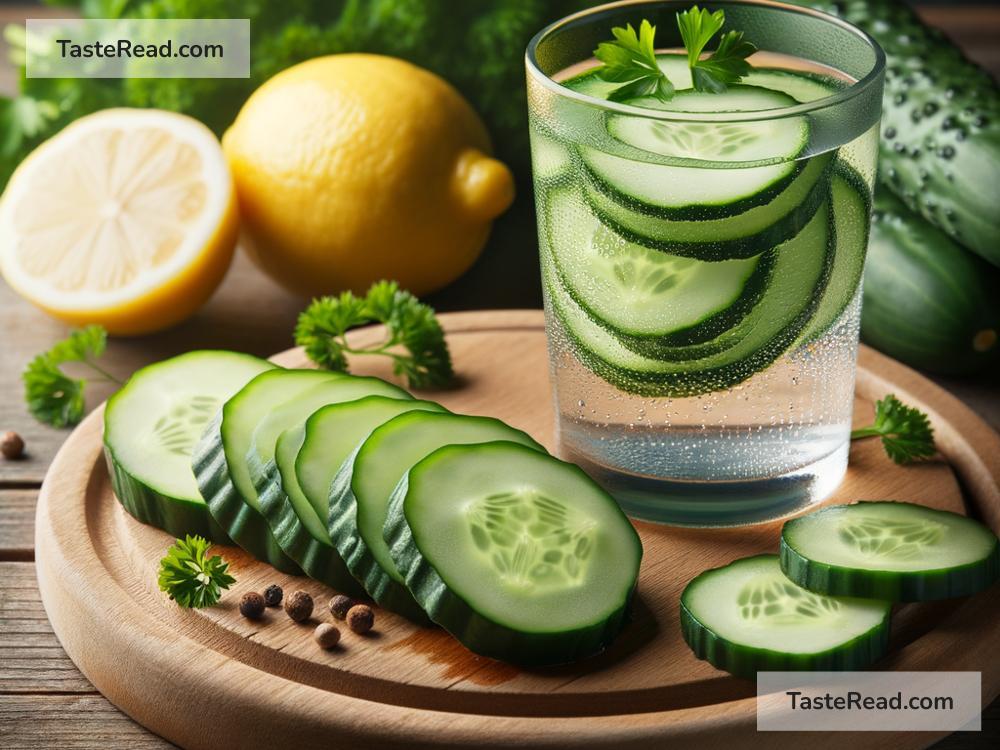Can Cucumbers Really Lower Blood Pressure?
If you’ve ever been told to “eat your greens,” then you’re familiar with the idea that vegetables are good for your health. Cucumbers, with their crunchy texture and refreshing taste, are often a favorite addition to salads, sandwiches, and smoothies. But beyond being a tasty snack, do cucumbers offer significant health benefits? One claim we often hear is that cucumbers may help lower blood pressure. So, is there truth to this idea? Let’s dive into the science behind cucumbers and their impact on your blood pressure, written in simple English that anyone can understand.
What is Blood Pressure?
To understand how cucumbers may help, let’s first talk about what blood pressure is. Blood pressure measures how hard your heart is pumping blood through your arteries. It’s expressed as two numbers: the first is called systolic pressure (pressure during a heartbeat), and the second is diastolic pressure (pressure when your heart rests between beats). For example, if your blood pressure is 120/80 mmHg, that’s considered normal.
Having high blood pressure—also called hypertension—means your heart is working extra hard to pump blood. Over time, this can cause serious health problems, like heart disease, stroke, and kidney problems. Lowering your blood pressure is crucial to living a healthier, longer life.
Cucumbers and Blood Pressure: What’s the Connection?
Cucumbers are often praised for being low in calories and rich in nutrients, but how do they help blood pressure? Cucumbers may help in a few key ways:
-
Rich in Potassium: Cucumbers contain potassium, a mineral that plays an important role in maintaining healthy blood pressure. Potassium balances the effects of sodium (salt) in your body. When you eat too much sodium and too little potassium, your blood pressure can rise. Potassium helps relax blood vessel walls and remove extra sodium through urine, which lowers blood pressure. While cucumbers aren’t the richest source of potassium out there (bananas, avocados, and sweet potatoes have much more), they can still be a healthy part of a potassium-rich diet.
-
Hydration Benefits: Cucumbers are made up of about 95% water—yes, they’re almost all water! Staying hydrated is good for your overall health, including your blood pressure. Dehydration can sometimes cause your blood vessels to tighten, which raises blood pressure. Eating water-rich foods like cucumbers (and drinking enough water) helps keep your body hydrated and your blood pressure in check.
-
Low in Sodium: Many processed foods are high in sodium, which can push your blood pressure upward. Fortunately, cucumbers are naturally very low in sodium. Replacing salty snacks with cucumber slices helps reduce your overall sodium intake, supporting better blood pressure control.
-
Antioxidants and Nutrients: Cucumbers also contain antioxidants like vitamin C and compounds called flavonoids. Antioxidants can reduce inflammation and improve your heart health. A healthy heart means better blood pressure regulation.
Eating Cucumbers for Blood Pressure: Does It Work?
So, can eating cucumbers alone really lower blood pressure? While cucumbers are nutritious and have properties that could support healthy blood pressure, they’re not a cure-all. Eating cucumbers won’t magically bring down your numbers if you’re already dealing with hypertension. Instead, cucumbers can be one small piece of a larger puzzle: a healthy diet and lifestyle.
Cucumbers are great, but they need to be part of a balanced diet that includes other fruits, vegetables, whole grains, lean proteins, and healthy fats. Many experts recommend following the DASH diet (Dietary Approaches to Stop Hypertension), which is specifically designed to help manage high blood pressure. This diet emphasizes potassium-rich foods like cucumbers, along with minimizing salt intake.
Other Healthy Habits to Lower Blood Pressure
Beyond your diet, certain lifestyle changes can also help lower blood pressure. Here are some tips:
-
Stay Active: Regular exercise, like walking, swimming, or yoga, can help lower blood pressure. Aim for at least 30 minutes a day, most days of the week.
-
Cut Back on Salt: Excess salt is one of the biggest contributors to high blood pressure. Use herbs and spices to flavor your meals instead of relying on salt.
-
Manage Stress: Chronic stress can raise your blood pressure. Try relaxation techniques like meditation or deep breathing.
-
Quit Smoking and Limit Alcohol: Smoking and excessive drinking can worsen blood pressure. Cutting back can make a big difference.
-
Get Enough Sleep: Poor sleep can lead to higher blood pressure. Aim for 7–8 hours per night.
Final Thoughts: Should You Start Eating More Cucumbers?
Yes, cucumbers can be a helpful part of a heart-healthy, blood-pressure-friendly diet. Their potassium content, hydration benefits, and low sodium make them a smart choice. However, cucumbers alone aren’t a miracle cure for hypertension. If you want to lower your blood pressure, focus on a combination of healthy eating, regular exercise, stress management, and avoiding unhealthy habits.
The next time you reach for a cucumber, you can feel good knowing you’re doing something good for your health. Slice them up as a snack, toss them into a salad, or blend them into a smoothie—it’s a simple and refreshing way to support your heart and overall wellness. After all, small steps like adding cucumbers to your diet can lead to big, positive changes for your health. So why not give cucumbers a spot on your plate today?


